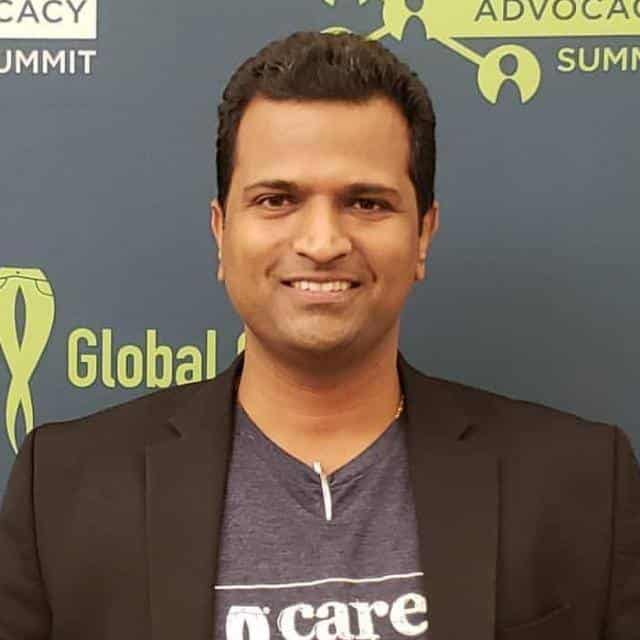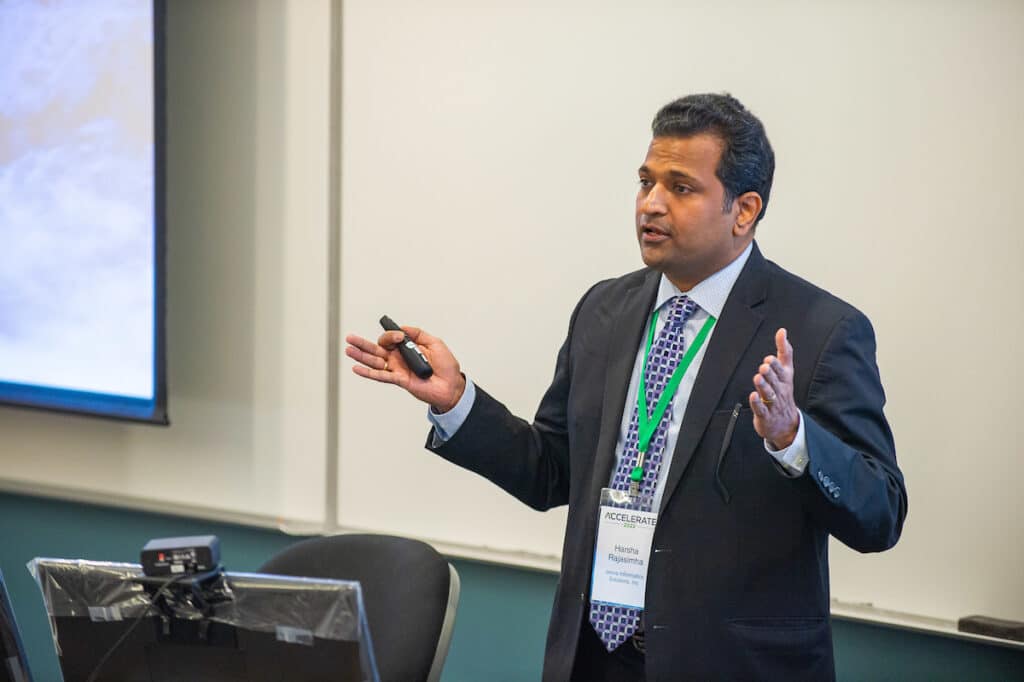
*Did you know that 80% of participants of randomized, controlled clinical trials are Caucasian males or that less than 10% of those trials included children? Furthermore, women and minorities are much less likely to participate in these clinical trials due to logistical concerns that are logistical barriers such as childcare, transportation, loss of pay and local infrastructure.
If you didn’t know any of things don’t be too hard on yourself. Neither did we up until last week. That’s when EURweb had the opportunity to interview Dr. Harsha Rajasimha, Phd, an expert on disparities inherent within, as well as the need to diversify the demographics, of clinical trials and creator of Jeeva Informatics.
EURweb.com: What’s your background and what is the catalyst for your interest in clinical trials and demographics?
Dr. Harsha Rajasimha, Phd: “As I came out of the computer software and engineering background, I started to get into the human genome sequencing and data analysis. My experience in the first ten years of my career mostly involved academic research working for the National Institute of Health, the FDA, as well as publishing a number of articles analyzing genome sequencing data sets for cancer, retinal disease, and infectious disease, including the SARS coronavirus. Up until 2012, I was loving what I was doing but a crisis hit our family.”
“We had a newborn child who was diagnosed with a rare genetic disease and that’s what got me onto the patient advocacy side. I got exposed to what was on the other side of the same coin, which I was a bit disconnected from. As I was analyzing big data and crunching numbers, I was missing the human element because I am not a medical doctor.“
“That got me thinking about how can we actuate therapies? Because most rare disorders don’t have any treatment options and it takes a long time to diagnose most rare diseases. On average it’s seven years.”
Another thing we learned during our conversation with Dr. Harsha was the dearth of treatments for most rare diseases.
OTHER NEWS ON EURWEB: Umm, Er, Peeing in the Shower is NOT A Good Idea – We’re Taking Severe Health Consequences | VIDEO
Dr: Harsha Rajasimha, Phd: “You begin to realize that sometimes clinical trials are the best thing for a patient living with a rare disease or, sometimes, even a chronic disease which can be life altering for them. Those disease don’t have any treatment options 95 percent of the time.”
“90 percent of clinical trials happen in the western world, either the United States or Europe. The rest of the world is largely disconnected, historically,” he continued.
“There are clinical research projects or clinical trials which can help patients living with chronic or rare disease anywhere in the world. But 80 percent of all clinical trial participants continue to be Caucasian, most of them male and middle-aged from an affluent background.”
EURweb.com: What are some of the true barriers to a more diverse pool of clinical studies participants?
Dr. Harsha Rajasimha, Phd: “The funding is mostly coming from the United States and Europe through a government agency standpoint. They actually get to participate more because, historically, the sites of clinical trials have been in these regions.”
“In America, Asians are a minority. But if you look at it on a global scale, as was the case with a Coronavirus vaccine, the whole world relied on vaccines made by Phizer and Moderna.”
“As we know of those clinical trials, 80 percent are still Caucasian. When the target population is also the global population, the presentation in the clinical trial also needs to be proportional to Asians, Africans and various other racial and ethnic groups that are represented in this trial.”

EURweb.com: Can you give us a breakdown of why a clinical study would have to take place in Africa or Asian and not in the United States and Europe considering it’s normally the opposite?
Dr. Harsha Rajasimha: “Whenever there is a need to conduct a trial for a tropical disease, malaria, tuberculosis and such, they have to be conducted in Africa and India, we do not normally get patients in the United States for that.”
“More commonly seen disease that are spread everywhere, those tend to get completed within the U.S. and Europe because they don’t have any incentive of peer review measure categoric global, when they can get the thing done in a single country or a handful of countries where they have well-established playbooks already in place.”
“That’s one main thing, also these regulatory playbooks are more nationally driven, and each country has their own regulations. And if you do go to Africa and India the expectation is the commercialized approach in that country after the approval.”
“These countries cannot afford a drug that is priced for U.S. and European market pricing. If they operate at a very low price in these other countries, then that’s where things get (crazy). Those are all a big hinderance for doing global studies and it’s really not necessary.”
“In the case of rare diseases, for example, the geographic are extremely small and they are distributed in these countries.”
Here, Dr. Harsha gives an example of this paradigm.
Dr. Harsha Rajasimha, Phd: “Now, we have a booming industry with gene therapy, but we don’t have enough patients in the United States with certain rare disease because there are ten companies aiming to develop gene therapy treatments for the same rare disease.”
“And they cannot have the same patient participate in multiple trials. Once a patient is enrolled then they have to find a different patient. It’s forcing these biotech companies to go global. It’s happening a little bit, but not enough because it is not at scale and not proportional to global populations. “
EURweb.com: How is technology making things a little easier?
Dr. Harsha Rajasimha, Phd: “In several ways. One is communication. You need to be able to communicate via video, audio, text, email, multiple ways from wherever you are. The second part is using technology to educate patients before, during and after they participate in a clinical trial. It’s a divine contract that happens between the doctor and the patient that needs to occur and if that must happen remotely, as it has during the pandemic in many trials for the very first time, before that 99 percent of all in person.”
“That’s where the trust building begins. These clinical trials can last nine months to nine years, you want to start of on the right footing. If the patient finds out that they weren’t properly informed or something else isn’t right, they’re going to pull back from the trial.”
We Publish News 24/7. Don’t Miss A Story. Click HERE to SUBSCRIBE to Our Newsletter Now!





